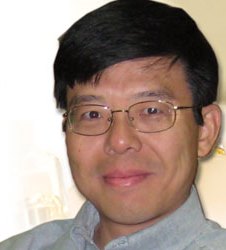
"Functional Mapping: A Computational Framework to Dissect Complex Phenotypes as a Dynamic System," will be presented by Rongling Wu of Penn State University at 4 p.m., Feb. 4 in E103 Beadle Center. The seminar is free and open to the public.
A competing theory for studying complex phenotypes has emerged by viewing their formation as a "system" in which a high-dimensional group of interconnected components interact with each other across different levels of biological organization from molecules to cells to whole organisms and communities.
The innovation of this theory lies in its capacity to delineate the underlying components, interactions and mechanisms that govern the system according to biological principles and further understand how these components function synergistically to comprise a unified whole. Such knowledge provides a fuel to change and engineer the phenotypic outcome of the system by altering those components and interactions that play a key role in the function and behavior of the system.
In this talk, Wu will describe a conceptual framework for genetic mapping of complex traits by which to characterize genes and genetic interactions involved in the co-regulation of different components in a biological system.
The Beadle Center is located at 1901 Vine Street. The complete schedule of seminars may be found at http://biotech.unl.edu/.